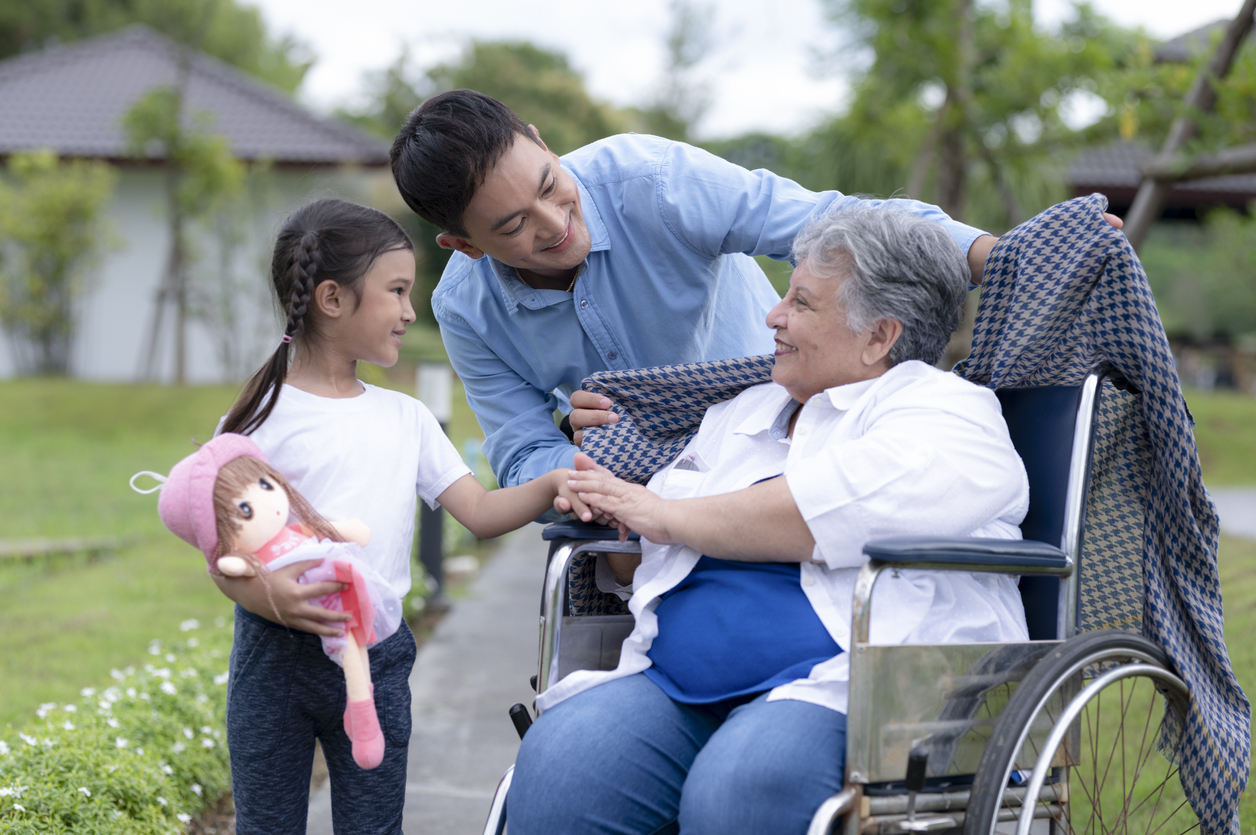“I wish I had done this sooner.” We hear this a lot from dementia caregivers.
They say it when they see their loved one’s face light up for a respite visitor. They say it when they learn a new way to soothe challenging behavior. They say it when they discover a community who truly understands the load they’ve been carrying.
If your loved one is living with dementia, you may need this kind of support too. Through a series of free programs, HopeHealth aims to make the road a little easier for both of you.
“We have consistent support from the beginning of your journey with dementia,” says Deanna Upchurch, director of Community and Clinical Outreach Services.
Here’s an overview.
> Connect with HopeHealth Circle of Love dementia care.
1. Free respite and resources in Massachusetts
When Gary’s wife, Paula, was diagnosed with early-onset dementia, he found himself struggling with caregiver burnout. Then our Alzheimer’s and dementia respite program in Massachusetts arranged for a respite aide to come to their home once a week — for free.
“I get peace of mind that Paula’s not alone. I’m able to focus on what I need to do without worrying,” Gary says.
Our Alzheimer’s Disease Assistance Program is open to families:
- Who live in communities in Massachusetts
- Affected by any form of dementia (not just Alzheimer’s)
Free services include:
- Respite care: Up to 4 hours weekly of in-home respite for up to 16 hours monthly, or up to 4 days monthly at adult day health centers
- Information about other dementia support services in the community
- Emotional support for caregivers
Every day, Alzheimer’s Program Coordinator Robin Walsh hears from caregivers like Gary, who experience the program as “a wonderful gift during a difficult time.”
“The programs allows caregivers to recharge,” Robin says. “The benefits to their well-being are equally as important as the benefits to their loved one.”
> Related: Caring for someone with dementia? In MA, a free program is here to help
2. Virtual education for caregivers
For any caregiver, the right information can mean the difference between feeling helpless and feeling hopeful. That’s certainly true for dementia caregivers, who face unique challenges as the disease progresses.
“New information about dementia is emerging every day, from how the disease affects patients to how caregivers should approach the changes happening to their loved one,” says dementia expert Lisa Wasson, RN, CHPN.
HopeHealth presents free workshops to empower caregivers with this knowledge, led by experts like Lisa.
The Caregiver Confidence series includes:
- The Grief Journey of the Dementia Caregiver
- Holiday Tips for the Dementia Caregiver
- Caring for a Loved One with Dementia
- Dementia and Hospice Eligibility
“The more that caregivers learn, the better the journey ahead of them will be,” Lisa says.
> Related: How does dementia feel? A new training builds understanding & empathy
3. Caregiver support groups
HopeHealth offers dementia caregivers knowledge and community in another crucial format: caregiver support groups.
“Being in a group of other people who have seen it, who have lived it — it doesn’t solve the problem. But it makes the problem more identifiable, and gives you different approaches for dealing with it,” says Mark Gilchrist, who spent years caring for his Aunt Kay before trying a support group. “You realize that you’re not alone.”
Our caregiver support groups are open to:
- Any caregiver in Rhode Island or Massachusetts
- Anyone with a loved one on HopeHealth’s service, no matter where they live
These groups:
- Meet virtually five days a week, at convenient times for caregivers
- Include focused groups, like for Parkinson’s caregivers
- Include a meditation group, to help caregivers pause from caregiving and learn relaxation techniques
- Are led by facilitators with personal experience caring for someone with dementia
Because facilitators have firsthand experience as dementia caregivers, they also offer tips and resources that are hard to find on your own.
“Not only are our facilitators really great advocates, but they have that personal knowledge,” says Deanna. “There’s nothing like receiving information from someone who’s had a lived experience.”
> Related: From a dementia caregiver: 10 tips for self-care
4. Circle of Love hospice program
As dementia progresses, and palliative care is no longer enough, hospice provides extra services and support for your loved one and family. When Mark called to ask about hospice for Aunt Kay, it transformed both their lives.
“It was a real wake-up call for me that there was a different way to go about her care,” Mark says. “I’d been on my own, doing something I had no idea I’d have to do. The hospice team came in and supported me step by step.”
HopeHealth Circle of Love Dementia Care is based on three core beliefs:
- People with dementia can still live a meaningful life. Our holistic approach to care includes services like art therapy, music, reiki, hand massage and pet therapy.
- Sharing expertise builds trust. We teach you strategies to manage your loved one’s behavior changes, maintain activities of daily living, and reduce emotional distress. We also share resources like a home safety checklist, a dementia activities booklet and more.
- Caregivers need comfort and support too. Our hospice volunteers can spend time with your loved one while you take a break. We also offer caregiver support groups (see above), and mindfulness and meditation sessions.
As always, hospice includes emotional and spiritual support too. “Everyone helped me psychologically adjust and prepare for what was ahead,” Mark says. “They helped both of us in so many ways.”
And it can go hand in hand with all the programs above — providing yet another layer of care when you and your loved one need it most.

